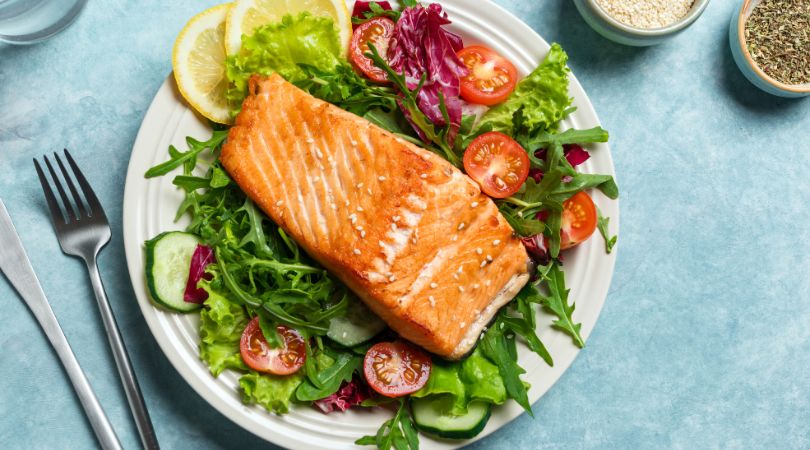Healthy Eating Habits for Independent Senior Living: Nutritional Tips for a Balanced Diet
Maintaining a healthy and balanced diet is essential for seniors who want to continue living independently and enjoy a high quality of life. At The Mansions Senior Living, we believe that proper nutrition is key to supporting overall health, energy levels, and well-being. By following healthy eating habits, seniors can enhance their independence while reducing the risk of chronic diseases and maintaining vitality.
Why Nutrition Matters for Seniors
As we age, our nutritional needs change. Metabolism slows down, muscle mass decreases, and the body may require fewer calories but more essential nutrients. Eating a balanced diet helps with:
-
- Boosting Immunity – A nutrient-rich diet helps fight infections and illnesses.
-
- Maintaining Energy Levels – Proper nutrition keeps seniors active and engaged.
-
- Preventing Chronic Diseases – A balanced diet reduces the risk of heart disease, diabetes, and osteoporosis.
-
- Enhancing Cognitive Function – Nutrient-rich foods support brain health and reduce the risk of memory-related conditions.
-
- Promoting Digestive Health – Fiber-rich foods help prevent constipation and other digestive issues.

Nutritional Tips for a Balanced Diet
1. Focus on Nutrient-Dense Foods
Seniors should prioritize foods rich in essential vitamins and minerals while avoiding empty calories. Some of the best nutrient-dense foods include:
-
- Fruits and vegetables (leafy greens, berries, carrots, bell peppers)
-
- Lean proteins (chicken, fish, eggs, legumes, tofu)
-
- Whole grains (brown rice, quinoa, whole wheat bread, oatmeal)
-
- Healthy fats (avocados, nuts, seeds, olive oil)
-
- Low-fat dairy (Greek yogurt, cheese, milk)
2. Stay Hydrated
Dehydration is common among seniors, leading to fatigue, confusion, and kidney issues. It’s essential to drink plenty of water throughout the day. Other hydrating options include herbal teas, fresh fruit-infused water, and low-sodium broths.
3. Maintain a Consistent Meal Schedule
Skipping meals can lead to energy imbalances, dizziness, and poor nutrient intake. Seniors should aim to eat three well-balanced meals a day with small, healthy snacks in between to maintain steady energy levels.
4. Control Portion Sizes
Since metabolism slows with age, overeating can lead to weight gain and other health concerns. Seniors should focus on portion control by using smaller plates and mindful eating techniques to avoid overeating.
5. Increase Fiber Intake
Fiber is crucial for digestive health and can help prevent constipation. Seniors should include fiber-rich foods such as:
-
- Whole grains
-
- Legumes
-
- Fruits (apples, pears, oranges)
-
- Vegetables (broccoli, spinach, carrots)
-
- Nuts and seeds
6. Limit Processed and Sugary Foods
Highly processed foods and sugary snacks can contribute to weight gain, diabetes, and heart disease. Seniors should opt for whole, unprocessed foods whenever possible and limit the intake of:
-
- Sugary drinks (soda, fruit juices with added sugar)
-
- Packaged snacks (chips, candy, pastries)
-
- High-sodium processed foods (canned soups, frozen meals)

7. Incorporate Omega-3 Fatty Acids
Omega-3 fatty acids play a crucial role in brain health and reducing inflammation. Good sources include:
-
- Fatty fish (salmon, mackerel, sardines)
-
- Chia seeds and flaxseeds
-
- Walnuts
-
- Fortified eggs
8. Monitor Vitamin and Mineral Intake
As seniors age, they may need additional supplements to meet their dietary needs. Some essential vitamins and minerals include:
-
- Calcium and Vitamin D for bone health (found in dairy products, leafy greens, and fortified foods)
-
- Vitamin B12 for energy and cognitive function (found in lean meats, eggs, and dairy)
-
- Magnesium for muscle function and heart health (found in nuts, seeds, and whole grains)
9. Prepare Simple and Healthy Meals
Cooking nutritious meals doesn’t have to be complicated. Easy meal ideas include:
-
- Grilled salmon with roasted vegetables
-
- Whole grain toast with avocado and poached eggs
-
- Greek yogurt with berries and nuts
-
- Stir-fry with tofu and brown rice
-
- Vegetable soup with lean chicken
10. Enjoy Social Meals
Eating with friends and family makes meals more enjoyable and can encourage seniors to maintain a healthy diet. The Mansions Senior Living offers communal dining experiences that promote both good nutrition and social interaction.
A Commitment to Healthy Living at The Mansions Senior Living
At The Mansions Senior Living, we prioritize the health and well-being of our residents by offering nutritious meal options, wellness programs, and community engagement opportunities. We believe that independent living should be complemented by a balanced diet that supports longevity and overall happiness.
If you or your loved one is looking for a senior living community that values health, wellness, and vibrant living, contact The Mansions Senior Living today. Our team is committed to helping seniors enjoy an active and fulfilling lifestyle through nutritious meal plans and supportive services.
Your health is your wealth — embrace a balanced diet and independent living with The Mansions Senior Living